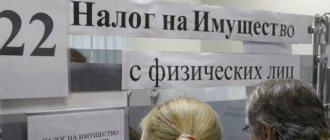Who pays personal income tax?
Personal income tax, according to the name of this tax, must be paid by individuals. Tax Code in para. 3 p. 2 art. 11 includes in this category:
- citizens of the Russian Federation;
- citizens of other countries;
- stateless persons.
Some clarification is required for minor children. They are also recognized as personal income tax taxpayers with the only condition: legal representatives must act on their behalf in legal relations with the tax service. As a rule, these are their parents or guardians. This thesis is covered in detail in letters from the Ministry of Finance of Russia dated 05/03/2012 No. 03-04-05/3-586 and the Federal Tax Service of Russia dated 04/23/2009 No. 3-5-04/ [email protected]
This list also includes individual entrepreneurs who, according to paragraph. 4 p. 2 tbsp. 11 of the Tax Code of the Russian Federation also apply to individuals. Since the status of individual entrepreneurs is available only to citizens of the Russian Federation, entrepreneurs, as a result, are within the first point.
It should be noted that not every individual can be recognized as a personal income tax payer, but only one who:
- is a tax resident of the Russian Federation;
- is not a tax resident of the Russian Federation, but receives income in our country.
This definition of payers of this tax is contained in paragraph 1 of Art. 207 of the Tax Code of the Russian Federation.
Taxpayers who are individuals
The legislation names citizens of Russia, foreigners and persons who do not have one as individuals. The current procedure gives them a similar status, and they fulfill their payment obligations on a general basis. They all receive an individual number. In some cases, opportunities may depend on citizenship. We are talking about the opportunity to receive benefits or exemption.
Separate regulation is provided for individual entrepreneurs (IP). In addition to registering as an individual, they must submit documents, additional declarations, and also receive a certificate of registration as an individual entrepreneur. This category, according to Art. 11 of the Tax Code, includes the head of a farm or peasant enterprise. Such a person is considered an entrepreneur. The rights and responsibilities of taxpayers in this category are much broader than those of an ordinary citizen.
If these entities are not registered, then they still bear tax risks similar to those associated with the details of individual entrepreneurs. It will not work to refer to the fact that such a taxpayer name does not exist. The fact that a person carries out entrepreneurial activities without being registered as an individual entrepreneur does not relieve him of liability.
There is also a category such as self-employed citizens. These include lawyers and notaries.
If the taxpayer is incapacitated or is a minor, then the necessary functions are performed by representatives (parents or guardians). However, it is the ward or the child who is registered and receives an individual number. But all risks associated with liability are borne by the representatives.
Who are residents and non-residents?
Paragraph 2 of Article 207 of the Tax Code contains a definition clarifying who should be considered a tax resident. The law includes individuals in this category who have been in the Russian Federation for at least 183 days. Moreover, this period must be within 12 consecutive months.
Using this definition, it is easy to find out who is a non-resident of the Russian Federation. This category accordingly includes persons who are on the territory of the Russian Federation for less than 183 days, falling within 12 consecutive months. The category of non-residents includes labor migrants, foreign tourists, students, etc.
There are also special cases in this matter. For example, the Russian Ministry of Finance in letter dated December 24, 2012 No. 03-04-06/6-364 explained that non-residents should also include individuals located within the Russian continental shelf. Specialists from the Ministry of Finance, having in mind tax legal relations, moved this territory outside the Russian Federation.
Features of determining residence
Citizenship of the Russian Federation is not a determining condition for establishing the status of a Russian tax resident. This means that a Russian citizen may not be a tax resident of the Russian Federation, and vice versa, not only a foreigner, but even a person without citizenship can be recognized as a tax resident of the Russian Federation. Supervisory authorities have spoken out on this issue more than once, for example, in letters from the Ministry of Finance of Russia dated November 15, 2012 No. 03-04-05/6-1305, Federal Tax Service of Russia dated September 23, 2008 No. 3-5-03/ [email protected] , Federal Tax Service of Russia in Moscow dated February 29, 2008 No. 28-10/019821.
From all that has been said, a particular conclusion follows that in determining the status, the place of birth of an individual and his address of residence are of no importance.
However, there are also persons who, according to paragraph 3 of Art. 207 of the Tax Code of the Russian Federation does not apply to the time limit of 183 days. That is, regardless of the duration of stay in the Russian Federation, the following should be considered tax residents of the country:
- Russian military personnel serving abroad;
- state and municipal employees, as well as employees on business trips abroad.
But in relation to family members of government employees, tax status should be determined in a general manner. The same rule applies to persons working in diplomatic and trade missions and consular offices. The Ministry of Finance of Russia, in a letter dated August 26, 2009 No. 03-04-05-01, separately addressed this issue.
In addition, the Tax Code in Art. 7 determined: if the Russian Federation has international agreements that establish norms other than those in the Tax Code of the Russian Federation, then the provisions from international treaties must apply. This also applies to the procedure for establishing residency. Letter of the Federal Tax Service of Russia dated October 1, 2012 No. OA-3-13 / [email protected] confirms this. In particular, it contains references to the following acts:
- Agreement dated December 5, 1998, concluded by the Governments of the Russian Federation and the Republic of Cyprus on the avoidance of double taxation.
- Agreement dated 02/08/1995, concluded by the Governments of the Russian Federation and Ukraine on the avoidance of double taxation and the prevention of tax evasion.
About the rules for determining residence, read the material: “How to correctly determine the period required to give a citizen the status of a tax resident”
Taxpayers who are organizations
Art. 11 of the Tax Code defines them as legal entities formed in accordance with Russian law, or foreign legal entities with legal capacity, as well as international organizations and their Russian branches or representative offices.
The legal status of branches and representative offices of organizations does not imply recognition of them as taxpayers. However, they are important in situations where tax control is carried out (on-site inspection of the branch’s activities) and are subject to registration with the issuance of a corresponding notification.
The Tax Code interprets the concept of branches and representative offices more broadly than the Civil Code. Tax regulations introduce the concept of a separate division, which means the presence of at least one stationary workplace. Each of them requires registration.
For what income are non-residents recognized as personal income tax payers?
Those persons who do not have the status of tax residents of the Russian Federation are recognized as personal income tax taxpayers only if their income is received from sources located in the Russian Federation. This provision is contained in paragraph 1 of Art. 207, art. 209 of the Tax Code of the Russian Federation. This leads to the obvious conclusion that there is no need to pay personal income tax on income of foreign origin. At the same time, the Ministry of Finance, in letters dated March 15, 2012 No. 03-04-06/6-63 and dated December 8, 2011 No. 03-04-06/6-341, decides to once again confirm this right.
Example
A foreign specialist came to Moscow to one of the scientific institutes to share his experience. He received a reward for giving lectures and conducting practical classes. Undoubtedly, such income has a source in the Russian Federation, and, therefore, from the entire amount of income such a specialist will have to pay in accordance with subsection. 6 clause 1 art. 208 of the Tax Code of the Russian Federation to pay personal income tax.
You can learn about the specifics of calculating and withholding personal income tax for employees who often travel abroad in the material: “How to calculate personal income tax if your contractor is abroad almost all the time”
Generally, when determining the 12 months required to determine whether a person is a resident, some questions arise. We will present them with answers.
Responsibilities of taxpayers and fee payers
The responsibilities of the taxpayer and the payer of fees do not coincide in their composition. The Tax Code contains an open list of obligations of the taxpayer and payer of fees, which can be supplemented in other acts of legislation on taxes and fees.
For example, taxpayers paying taxes in connection with the movement of goods across the customs border of the Russian Federation also bear responsibilities determined by the customs legislation of the Russian Federation.
For failure to fulfill or improper fulfillment of the duties assigned to him, the taxpayer (payer of fees) is liable in accordance with the legislation of the Russian Federation. Such liability is provided for in the Tax Code, the Code of Administrative Offenses and the Criminal Code.
The only obligation of the payer of fees, which is expressly stated in Article 23 of the Tax Code, is the need to pay legally established fees. In addition to this obligation, payers of fees bear other obligations established by the legislation of the Russian Federation on taxes and fees.
For taxpayers, Article 23 of the Tax Code establishes the following responsibilities:
- pay legally established taxes (clause 1, article 3 and subclause 1, clause 1, article 23 of the Tax Code);
- register with the tax authorities (subclause 2, clause 1, article 23 of the Tax Code);
- keep records of your income (expenses) and taxable items in accordance with the established procedure (subclause 3, clause 1, article 23 of the Tax Code);
- inform tax authorities and their officials about the results of their activities (subparagraphs 4–6, paragraph 1, article 23 of the Tax Code);
- comply with the legal requirements of the tax authority (subparagraph 7, paragraph 1, article 23 of the Tax Code);
- ensure the safety of documents and information about its activities (subclause 8, clause 1, article 23 of the Tax Code).
These responsibilities apply equally to all taxpayers. In addition to these universal duties, Art. 23 of the Tax Code also establishes additional responsibilities for certain categories of taxpayers:
- from among organizations and individual entrepreneurs (clause 2 of article 23 of the Tax Code);
- for notaries engaged in private practice and lawyers who have established law offices (clause 3 of article 23 of the Tax Code).
The obligation to pay legally established taxes (fees) means that the taxpayer or payer of the fee is obliged to independently pay the legally established tax or fee, unless otherwise provided by the legislation on taxes and fees.
The grounds under which a taxpayer has an obligation to register with the tax authorities are defined in Art. 83 of the Tax Code, and the procedure for registration, re-registration and deregistration is in Art. 84 Tax Code.
Registration of organizations and individual entrepreneurs with the tax authority is carried out regardless of the presence of circumstances with which the Tax Code associates the emergence of an obligation to pay a particular tax or fee.
Registration with tax authorities of individuals who are not individual entrepreneurs is carried out by the tax authority at their place of residence on the basis of information received by the tax authority or on the basis of an application from an individual.
The obligation to keep records of your income (expenses) and taxable items in accordance with the established procedure occurs only if this is expressly provided for in the legislation on taxes and fees.
The obligation to inform tax authorities and their officials about the results of their activities is to provide them with tax reporting in accordance with the established procedure, as well as, if necessary, other information and documents about their activities.
The obligation to comply with the legal requirements of the tax authority means for the taxpayer the need to:
- not to interfere with the legitimate activities of tax officials in the performance of their official duties;
- eliminate identified violations of legislation on taxes and fees.
In relation to this obligation, taxpayers are given a compensatory right not to comply with illegal instructions and requirements.
The obligation to ensure the safety of documents and information about its activities means that the taxpayer must retain documents containing:
- accounting and tax data;
- information confirming receipt of income, expenses, and payment (withholding) of taxes;
- other information necessary for the calculation and payment of taxes.
Responsibility for organizing the storage of accounting documents, accounting registers and financial statements on the basis of clause 3 of Art. 17 of the Federal Law of November 21, 1996 No. 129-FZ “On Accounting” is borne by the head of the organization.
Question No. 1: Should months be calendar months?
Clause 2 of Article 207 of the Tax Code of the Russian Federation does not contain rules establishing that the 12 months required to determine residence must necessarily be calendar months. That is, it is not at all necessary that this time period begin, for example, on April 1, 2022, and end on March 31, 2022.
This statement is confirmed in letters of the Ministry of Finance of Russia dated March 26, 2010 No. 03-04-06/51, dated October 29, 2009 No. 03-04-05-01/779, Federal Tax Service of Russia dated June 25, 2009 No. 3-5-04/ [ email protected] and the Federal Tax Service of Russia in Moscow dated July 24, 2009 No. 20-15/3/ [email protected]
It is noteworthy that there is an alternative point of view on this issue, coming mainly from the tax service. Thus, in the letter of the Federal Tax Service of Russia for Moscow dated October 2, 2009 No. 20-15/3/ [email protected] , issued within 3 months from the date of the previous clarification on this topic, it is already stated that these months should be calendar months. However, this topic was not detailed, and calendar months can be attributed to inaccuracy of wording. The Ministry of Finance also expressed a similar point of view, but this was in an earlier letter dated March 29, 2007 No. 03-04-06-01/94.
Question #2: Should these 12 months fall within the same year?
Paragraph 2 of Article 207 of the Tax Code of the Russian Federation contains only one condition for these 12 months - they must follow each other. In other words, any continuous period is taken into account, even if it began in one calendar year and ended in another.
This can be confirmed by multiple explanations from regulatory authorities, contained, for example, in letters from the Ministry of Finance of Russia dated 04/26/2012 No. 03-04-06/6-123, dated 04/05/2012 No. 03-04-05/6-444, Federal Tax Service of Russia for Moscow dated 02.10.2009 No. 20-15/3/ [email protected]
Example
If the task is to determine residence on April 1, 2019, you should take the entire period inclusive from March 31, 2022 to March 31, 2022.
Question #3: How do I determine the date before a 12 month period?
Determining the date that is taken as the final reference point (it is preceded by a 12-month period), depending on the procedure for paying personal income tax, can go in two ways:
- If personal income tax is withheld and paid into the budget by the tax agent until the tax period has expired, then this date will coincide with the date the income was received. A similar conclusion was made in letters of the Ministry of Finance of Russia dated July 14, 2011 No. 03-04-06/6-170, Federal Tax Service of Russia dated August 30, 2012 No. OA-3-13/ [email protected] , Federal Tax Service of Russia for Moscow dated July 24, 2009 No. 20-15/3/ [email protected] The tax status, as follows from the letter of the Ministry of Finance of Russia dated March 19, 2013 No. 03-04-06/8402, should be determined at the end of the year.
- If an individual pays personal income tax independently at the end of the tax period, then residence is determined at the end of the tax period. In such circumstances, the period of stay of an individual in the Russian Federation is not taken into account both before the beginning of the tax period and after its end. This decision is supported by letters from the Ministry of Finance of Russia dated April 25, 2011 No. 03-04-05/6-293 and the Federal Tax Service of Russia dated August 30, 2012 No. OA-3-13 / [email protected]
Example
Employees often go on business trips abroad of varying durations. Moreover, some of them stay outside the Russian Federation for more than 183 days within a 12-month period.
Based on the results of the first quarter, on April 17, 2022, the company pays a bonus to all personnel. Since the company in the above circumstances acts as a tax agent, its accounting department should divide all employees into residents, whose income is taxed in accordance with paragraph 1 of Art. 224 of the Tax Code of the Russian Federation at a tax rate of 13%, and non-residents, whose income is taxed in accordance with clause 3 of Art. 224 of the Tax Code of the Russian Federation at a rate of 30%.
Status is determined on the date of payment of the bonus, which is considered income. That is, the company must count the number of calendar days that each employee spent in the Russian Federation during a 12-month continuous period. The period begins on April 16, 2022, and ends on April 16, 2019.
Registration of self-employed people with the tax office
To become self-employed, you need to register as a new tax payer. To do this, you need to submit a corresponding application through the payer’s personal account on the website of the Federal Tax Service of Russia. No other documents except the application may be provided.
If an individual does not have access to a personal account, you can register as a self-employed person using the “My Tax” mobile application, which will generate an application, enter the citizen’s passport data into it, and also send his photograph to the tax office.
The My Tax app will be free. It can be used both from a desktop computer and from a mobile device (phone, tablet). In any case, these are the plans and promises for now.
The date of registration of an individual as a taxpayer will be considered the date of sending the corresponding application to the tax authority. You will not need to receive any documents confirming your payer status.
It will also be possible to register as a self-employed person through an authorized bank, which will generate a corresponding application and submit it to the Federal Tax Service.
How to calculate a 183-day calendar period?
Calculating the 183-day period is not difficult: you need to sum up all the calendar days during which the personal income tax payer was in the Russian Federation, and those days that he needed for short-term trips for training or treatment. The count is carried out over a 12-month continuous period. This procedure is provided for in paragraph 2 of Art. 207 of the Tax Code of the Russian Federation and explained in the letter of the Ministry of Finance of Russia dated May 22, 2012 No. 03-04-05/6-654.
Article 207 of the Tax Code of the Russian Federation, which regulates the calculation procedure, does not contain instructions that these days must be consecutive. That is, the period may be interrupted by business trips, vacations, etc. The regulatory authorities have paid attention to this more than once, for example, in letters from the Ministry of Finance of Russia dated 04/06/2011 No. 03-04-05/6-228, Federal Tax Service of Russia dated 08/30/2012 No. OA-3-13/ [email protected] , Federal Tax Service of Russia in Moscow dated July 24, 2009 No. 20-15/3/ [email protected]
Example
An employee whose activities involve business trips was in the Russian Federation for more than 183 calendar days from April 16, 2022 to April 16, 2022. This period was interrupted several times, resulting in the following graph.
He stayed outside the territory of the Russian Federation for the following periods:
- from May 12 to May 23, 2022;
- from July 5 to July 13, 2022;
- from September 1 to September 20, 2022;
- from January 19 to January 30, 2022;
- from March 2 to March 27, 2022.
Total: 79 days.
On the territory of the Russian Federation it was located:
- from April 16 to May 11, 2022;
- from May 24 to July 4, 2022;
- from July 14 to August 31, 2022;
- from September 21, 2022 to January 18, 2022;
- from January 31 to March 1, 2022;
- from March 28 to April 16, 2022.
Total: 285 days.
Undoubtedly, the time spent on the territory of the Russian Federation is more than 183 days. Since he acts as a tax agent here, this employee should be recognized as a tax resident on April 17, 2019. It was on this day that he was paid income in the form of a bonus.
You can read about the importance of observing deadlines for staying on the territory of the Russian Federation in the material: “A long foreign business trip may be unprofitable for an employee from the point of view of personal income tax”
Is the 183-day period interrupted for training or treatment?
This period according to clause 2 of Art. 207 of the Tax Code of the Russian Federation is not interrupted for short-term trips if they are related to training and treatment, if they last less than 6 months.
In addition, the law does not limit personal income tax taxpayers by age, type of educational institutions, types of medical institutions and types of diseases, or even by country. The Federal Tax Service of Russia in a letter dated September 23, 2008 No. 3-5-03/ [email protected] confirmed this thesis. The main limitation is related to the time period of such actions - training or treatment should not last more than 6 months. Exceeding this period will be counted as being abroad. As a result, the taxpayer faces the threat of being included in the ranks of non-residents. The Ministry of Finance of Russia explains this in letter dated October 8, 2012 No. 03-04-05/6-1155.
In addition, control authorities (letter of the Ministry of Finance of Russia dated June 26, 2008 N 03-04-06-01/182, in particular) indicate that this period must be documented. This may include contracts with educational or medical organizations, certificates from them indicating the time of study or treatment, copies of foreign passports with border guards’ marks about crossing the border.
Example
The employee underwent training abroad in several stages:
- from September 1 to September 20, 2022 (20 calendar days);
- from January 19 to January 30, 2022 (12 calendar days);
- from March 2 to March 27, 2022 (26 calendar days).
In total, all days will be less than 6 months, which means that this employee will become a tax resident of the Russian Federation on the 183rd day.
The purpose of the stay - training or treatment - must be indicated initially in the purpose of the trip. If, for example, treatment was completed along the way, then the time spent on medical services abroad is not counted during the period of stay in the Russian Federation. Confirmation of this thesis in relation to short-term training is contained in the letter of the Ministry of Finance of Russia dated September 26, 2012 No. 03-04-05/6-1128.
Example
The employee entered into a 9-month employment contract with a company from Belgium. He began his duties on February 1, 2019, and a month and a half later, on March 16, there in Belgium he began taking a 4-month course to improve his professional skills.
He will not be able to include these 4 months of classes during his stay in the Russian Federation.
Land tax
The next tax that your property is also subject to is land tax. Payers of land tax are individuals who own land plots recognized as an object of taxation in accordance with Art. 389 of the Tax Code of the Russian Federation, on the right of ownership, the right of permanent (perpetual) use or the right of lifelong inheritable possession (clause 1 of Article 388 of the Tax Code of the Russian Federation).
Individuals are not recognized as taxpayers in relation to land plots that are in their gratuitous use, including gratuitous fixed-term use or transferred to them under a lease agreement.
The object of taxation is land plots located on the territory of municipalities in whose territory the tax has been introduced. The following are not recognized as objects of taxation:
- Land plots occupied by particularly valuable cultural and archaeological heritage sites, nature reserves, museums or world heritage sites,
- Land plots from the forest and water resources,
- Land plots included in the common property of an apartment building,
- Land plots withdrawn from circulation in accordance with the legislation of the Russian Federation.
The tax base for land plots that are in common shared ownership is determined for each of the taxpayers who are the owners of this land plot in proportion to its share in the common shared ownership, and in the case of being in common joint ownership - in equal shares.
The tax base is defined as the cadastral value of land plots recognized as an object of taxation in accordance with Art. 389 Tax Code of the Russian Federation. Information on the cadastral value of land plots is posted on the official website of Rosreestr on the Internet. The tax period for land tax is one year; the tax must be paid before December 1 of the following year.
Land tax rates are established by regulatory legal acts of municipalities and cities of federal significance and cannot exceed:
- 0,3% cadastral value for agricultural lands, lands acquired for personal subsidiary plots not used in business activities, as well as housing lands and their infrastructure,
- 1,5% cadastral value of other land plots.
Let us pay attention to some features of the calculation of land tax described in Art. 396 Tax Code of the Russian Federation. In the event that a taxpayer acquires (terminates) during the tax (reporting) period the right of ownership (perpetual use, inheritable possession) to a land plot (its share), the tax amount is calculated taking into account a coefficient defined as the ratio of the number of full months during which this the land plot was owned by the taxpayer by the number of calendar months in the tax (reporting) period.
If the emergence of the right of ownership or use occurred before the 15th day of the corresponding month, inclusive, or the termination of the specified right occurred after the 15th day of the corresponding month, the month of occurrence (termination) of the specified right is taken as the full month.
If the emergence of the right or use occurred after the 15th day of the corresponding month or the termination of the specified right occurred before the 15th day of the corresponding month inclusive, the month of occurrence (termination) of the specified right is not taken into account when determining the coefficient specified in this paragraph. The tenure period is calculated similarly for other property taxes.
The list of categories of citizens who are entitled to receive land tax benefits is similar to the preferential categories for property tax. For them, the tax base is reduced by the cadastral value of 600 square meters of land area owned, permanent (perpetual) use or lifetime inheritable possession of taxpayers.
Also added to this list are the indigenous peoples of Russia (in relation to land plots used for the preservation and development of their traditional way of life, farming and crafts), who are exempt from paying land tax.
How are the days of arrival and departure taken into account when calculating the period of residence?
The regulatory authorities have formed their position on this issue, and it is very convenient for taxpayers. So, the days of arrival and departure, in their opinion, should be included in the period of actual stay on the territory of the Russian Federation. You can verify this by studying the letters of the Ministry of Finance of Russia dated April 20, 2012 No. 03-04-05/6-534, the Federal Tax Service of Russia dated February 4, 2009 No. 3-5-04/ [email protected]
Example
The foreigner arrived in Russia on February 20 and left on March 31, 2019. According to the explanations of the control authorities, his period of stay on our territory begins on February 20 and ends on March 31 inclusive. In total this is 40 calendar days.
An alternative point of view also occurs, but rarely. In particular, the resolution of the Federal Antimonopoly Service of the Central District dated March 11, 2010 No. A54-3126/2009С4 contains a verdict that the day of arrival on the territory of the Russian Federation cannot be included in the days of stay in Russia.
If you follow the logic of the arbitrators, then in the above example the period of stay on the territory of the Russian Federation will be reduced by 1 day and will amount to 39 calendar days.
If we talk about the technical side of the matter, the dates of arrival and departure are determined by border control marks or other signs that are equally significant.
Results
A personal income tax payer is an individual resident of the Russian Federation who has received income in the territory of the Russian Federation.
It does not matter whether the resident is a citizen of the Russian Federation or a stateless person. In any case, he must pay tax. You must declare your income at the end of the calendar year. If the income is paid by the employer, then he, as a tax agent, is obliged to withhold income tax from the individual’s income and transfer it to the budget. You can find more complete information on the topic in ConsultantPlus. Free trial access to the system for 2 days.
Definition and essence of the concept
A taxpayer is a person (individual or legal) who, according to the law, is obliged to pay taxes to the state treasury. They can be both Russian citizens and foreigners, as well as organizations and individual entrepreneurs (individual entrepreneurs).
The relationship between the taxpayer and the state, his rights and obligations are established by the Tax Code (TC RF) - a set of documents that has priority in the field of taxation.
The reasons for paying tax may be:
- generating income (from trade, production, etc.);
- ownership of property (real estate, transport, land, etc.);
- purchase and sale of securities;
- receiving an inheritance;
- import of goods into the territory of the Russian Federation, etc.
Each type of mandatory payment has its own size, a certain payment period and other features.





